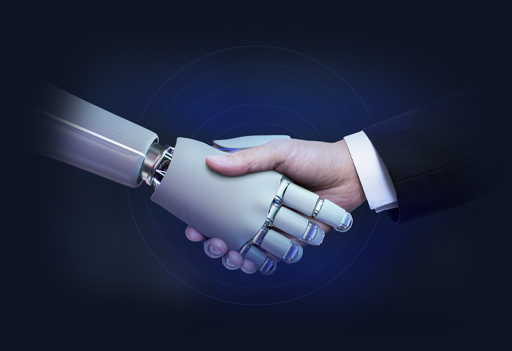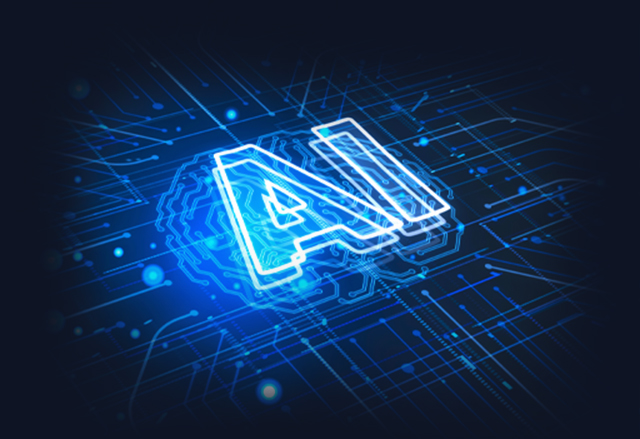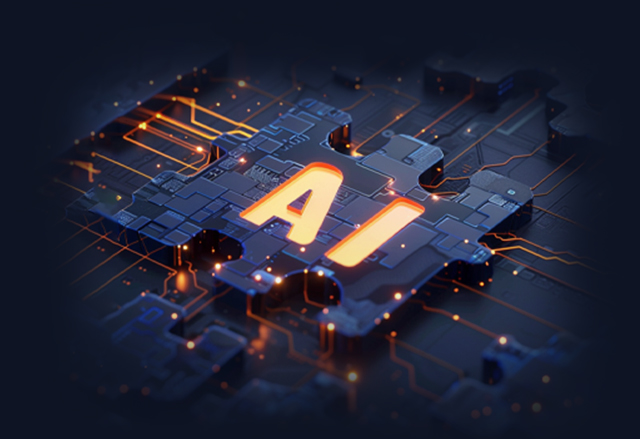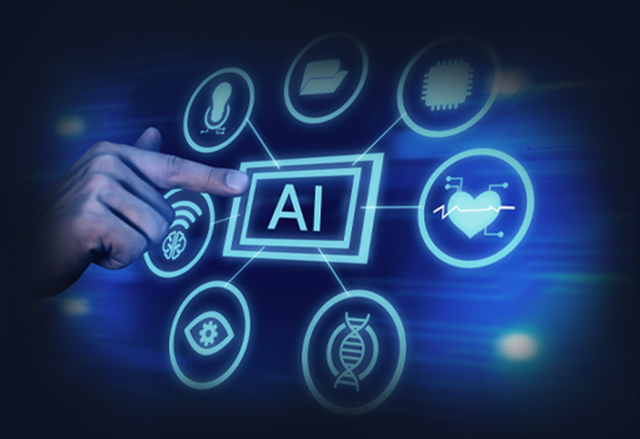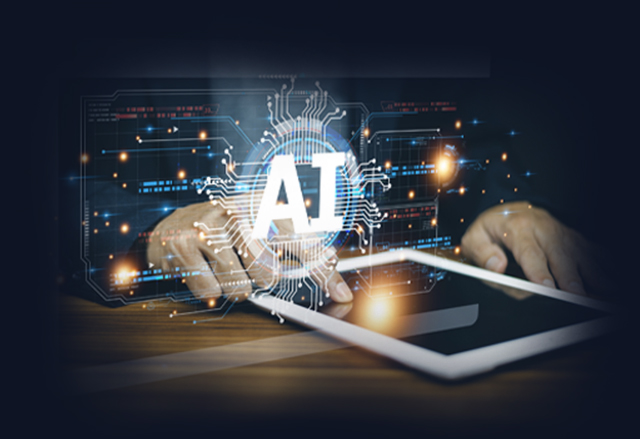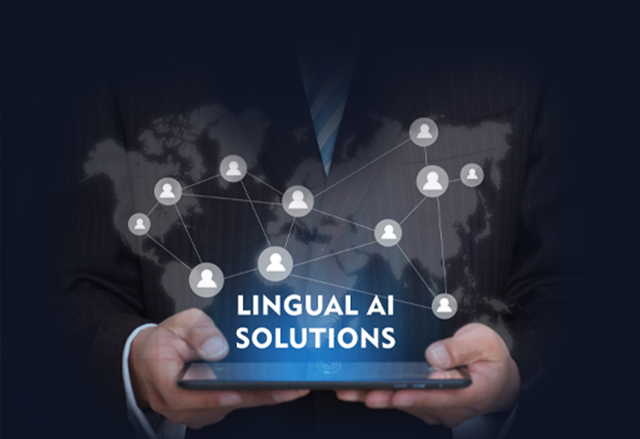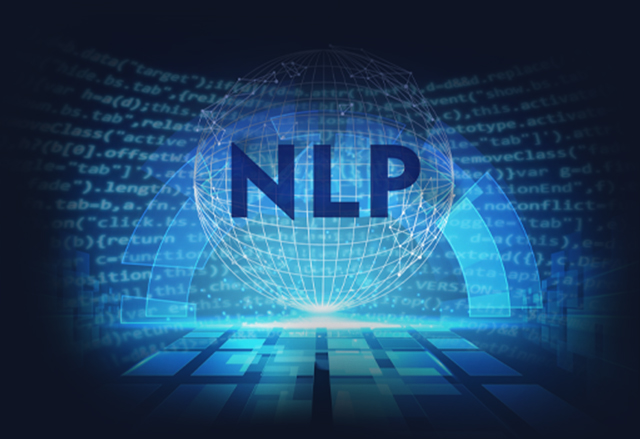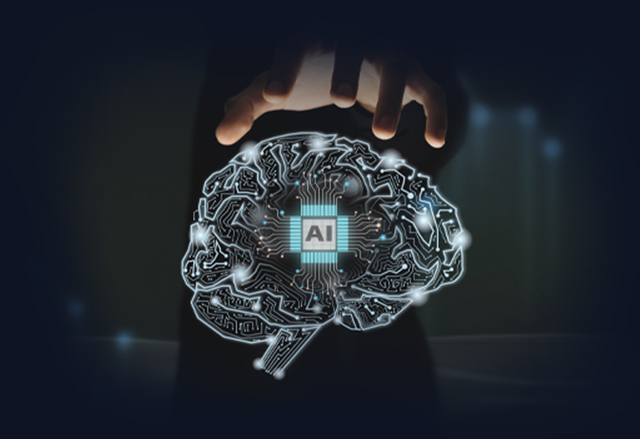Human-AI Synergy in Crafting Exceptional Customer Experiences

In a world where every customer interaction counts, the fusion of human expertise and AI innovation is reshaping the way businesses deliver exceptional service. This article delves into the dynamic partnership of AI and human talent, offering enterprises a roadmap to crafting unparalleled customer experiences.
As we unveil strategies that blend AI's efficiency with human empathy, businesses will discover the secret to not just meeting, but exceeding customer expectations in this modern service landscape.
Join us in exploring the transformative power of human-AI synergy in customer service excellence.
Customer Service Evolution: Handshakes to Chatbots
Customer service has come a long way over the years. In the past, customer support was all about face-to-face interactions, where people had to meet in person to discuss their needs and concerns.
As time passed, technology began to shape the way businesses interacted with their customers.
The telephone revolutionized communication, allowing people to seek help without leaving their homes.
No longer did they have to travel long distances or send letters and wait for weeks to receive responses.
The advent of email further streamlined communication, making it even more convenient.
Companies could now respond to inquiries and resolve issues at a pace previously unimaginable.
However, even with these technological advancements, customer service was still reliant on human operators who could get overwhelmed by high call volumes or large numbers of emails.
Fast forward to today, Artificial Intelligence has taken customer service to new heights.
Chatbots and virtual assistants have become a game-changer in customer service.
How did AI Transform Customer Service
- Instantaneous Responses: AI-powered chatbots respond to inquiries immediately, eliminating wait times. No more listening to music or waiting for a reply to your email.
- Availability 24/7: AI, unlike human workers, operates continuously, offering immediate support without downtime. Imagine having a tireless virtual assistant that never takes a break, ensuring help at your convenience, even during holidays and late nights.
- Personalization: AI can remember your preferences and previous interactions, providing a more personalized experience. It's like having a customer service representative who knows your history.
- Consistency: AI delivers unwavering service quality. While human performance can vary,
AI remains consistently reliable, offering its 'A' game every day, creating a dependable user experience.
- Efficiency: AI can handle multiple customer expectations simultaneously,
making customer service more efficient for both companies and customers by engaging in conversations with hundreds of customers at the same time even during high-demand periods, making online client support a seamless experience.
- Cost-Effective: Companies can save on labor costs by using AI, which, in turn, can lead to cost savings for customers.
For example, customer service chatbots, employed by airlines, can swiftly assist passengers with common queries, reducing the need for as many human agents. This not only cuts down on labor costs for airlines but can also result in more affordable airfare for customers.
- Learning and Improvement: AI learns from every interaction, becoming smarter over time. It can adapt to changing customer needs and preferences. Consider the recommendation algorithms used by streaming services like Netflix.
They constantly analyze your viewing habits and feedback to suggest better content,
showcasing how AI evolves with each interaction to cater to your changing tastes and preferences.
Artificial Intelligence has not only taken the loaf off human agents, it takes care of repetitive tasks,
allowing them to focus on more complex and emotionally nuanced interactions.
The Rise of AI in Customer Service
The use of AI in customer service has seen a noticeable rise in recent years, bringing about a wave of technological innovation.
Various AI technologies are now employed to enhance customer interactions, such as the following:
- Chatbots: Chatbots are AI-powered customer support agents that engage in real-time conversations with customers. They can answer questions, provide information, and even perform tasks like scheduling appointments or processing orders.
- Virtual Assistants: Virtual assistants like Siri and Alexa are familiar examples. In customer service, they provide voice-activated assistance, helping customers navigate complex tasks using natural language.
- AI Email Response: AI can analyze and respond to emails, automating routine customer inquiries and providing quick, accurate answers. For instance, online retailers often use AI to automatically address user queries regarding order status, return policies, or product information.
This ensures that customers receive rapid and consistent responses, improving their overall shopping experience and reducing the workload on customer service teams.
- Machine Learning Algorithms: These AI algorithms analyze customer data to identify patterns and preferences, enabling personalized recommendations and targeted marketing efforts.
- Predictive Analytics: AI-powered predictive analytics can forecast customer needs, allowing companies to be proactive in addressing issues or suggesting solutions. For example, In the healthcare sector, AI-driven predictive analytics can forecast patient admissions and disease outbreaks, enabling hospitals to allocate resources efficiently, minimizing patient waiting times, and ensuring timely care.
- Speech Recognition: This technology converts spoken language into text, ensuring AI comprehends and responds to user inquiries accurately, revolutionizing hands-free interaction.
The rise of AI in customer service represents a transformative shift towards efficiency, availability, and informed decisions.
As companies embrace these AI technologies, they can deliver faster, more consistent, and more personalized service experiences, ultimately benefiting both businesses and their valued customers.
The Synergy of Humans and AI
In the dynamic landscape of customer service, a powerful synergy is emerging between human agents and AI. Companies are now adopting hybrid customer service models that combine the strengths of both to provide more efficient, personalized, and ultimately satisfying customer experiences.
How can the collaboration between humans & AI happen?
- Efficiency through Automation: AI handles routine tasks and inquiries, such as basic troubleshooting or frequently asked questions. This automation streamlines customer service processes, reducing wait times and improving response times.
- Human-Trainted Artificial Empathy and Understanding: Human agents are adept at understanding complex issues and providing empathy when customers require a personal touch. That’s why they excel in training AI models to handle situations that require emotional intelligence, such as handling sensitive complaints or offering emotional support during crises.
- Data-Driven Personalization: AI analyzes customer data to personalize interactions. For example, AI can recommend products or services based on a customer's past behavior and preferences, creating a tailored and satisfying shopping experience.
- Seamless Handoffs: Hybrid models allow for seamless transitions between AI and human agents. AI can gather initial information and context, then transfer the conversation to a human agent when the situation requires a more in-depth discussion or resolution.
How does this impact the business?
- Improved Customer Satisfaction: The collaborative approach ensures that customers receive faster responses and resolutions to their issues. They benefit from the convenience of AI and the human touch when necessary, leading to increased overall satisfaction.
- Higher Resolution Rates: Combining AI's accuracy in data processing with human empathy and problem-solving skills results in higher issue resolution rates. Customers experience fewer frustrations and quicker solutions to their problems.
- Cost Savings: Companies benefit from reduced labor costs thanks to AI handling routine inquiries.
This allows businesses to allocate resources more efficiently, which can lead to improved profitability and competitive pricing.
- Enhanced Customer Loyalty: A more personalized and efficient customer experience fosters loyalty.
When customers feel heard and appreciated, they are more likely to return for future purchases and recommend the company to others.
- Competitive Advantage: Businesses that successfully implement hybrid customer service models gain a competitive edge. They can stand out by offering a level of service that combines the best of human interaction and AI automation.
In conclusion, blending human insight with AI's precision is essential for modern businesses to enhance customer experiences.
This synergy offers personalized, efficient service, fostering customer loyalty and setting enterprises apart in today's competitive market. Embracing human-AI collaboration is key to future success in customer engagement.
Frequently Asked Questions (FAQs)
What is a hybrid customer service model?
A hybrid customer service model combines human agents and AI technology to provide support.
What’s the difference between chatbots and virtual assistants?
Chatbots are text-based, task-specific programs, while virtual assistants are more versatile,
AI-powered entities that can handle various tasks, often with voice interactions.
What is the role of human oversight in AI systems for customer service?
Human oversight manages exceptional cases, errors, and ethical judgments in user interactions.


